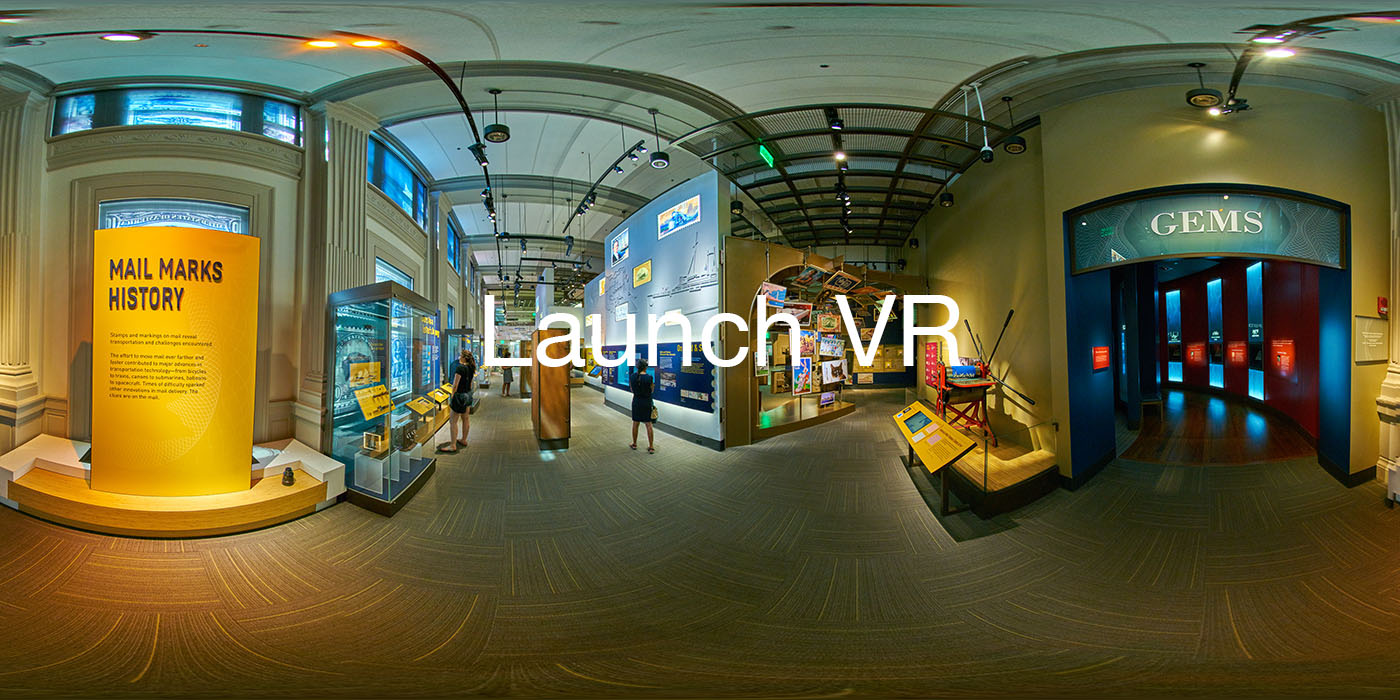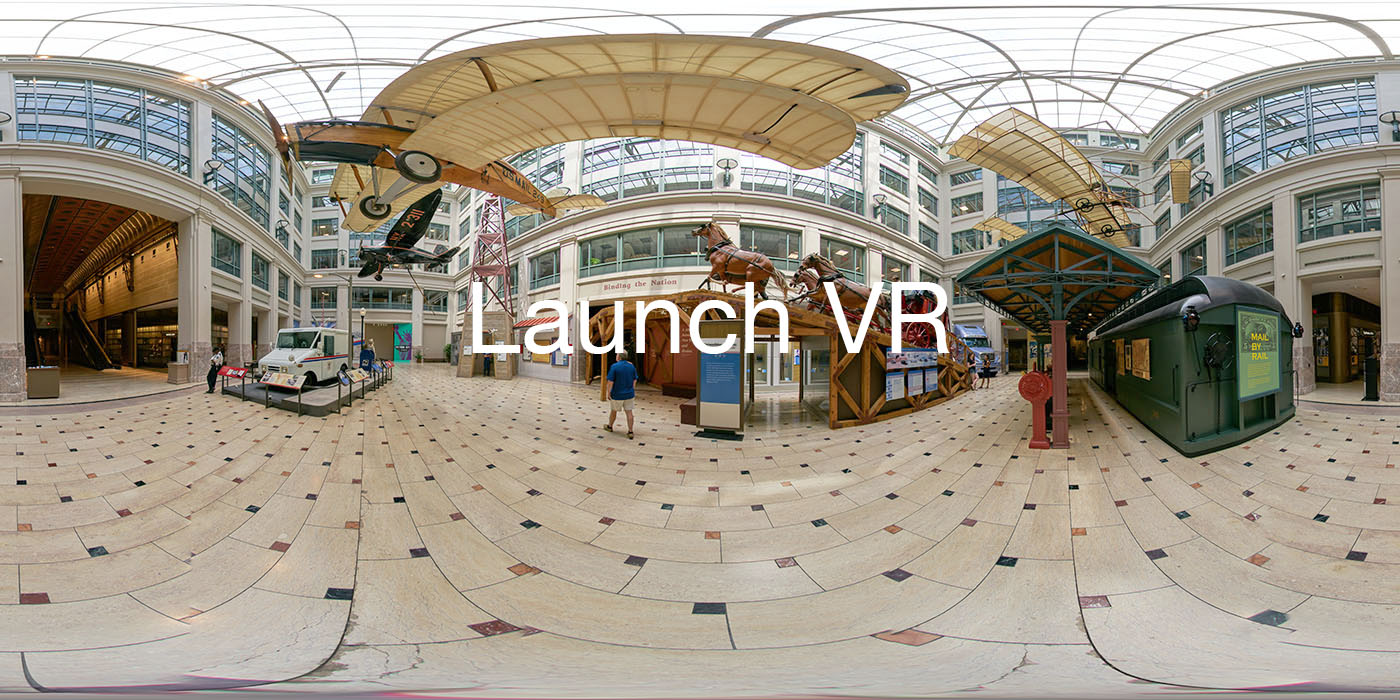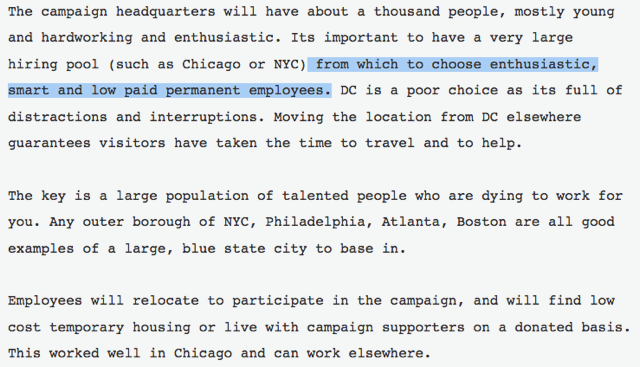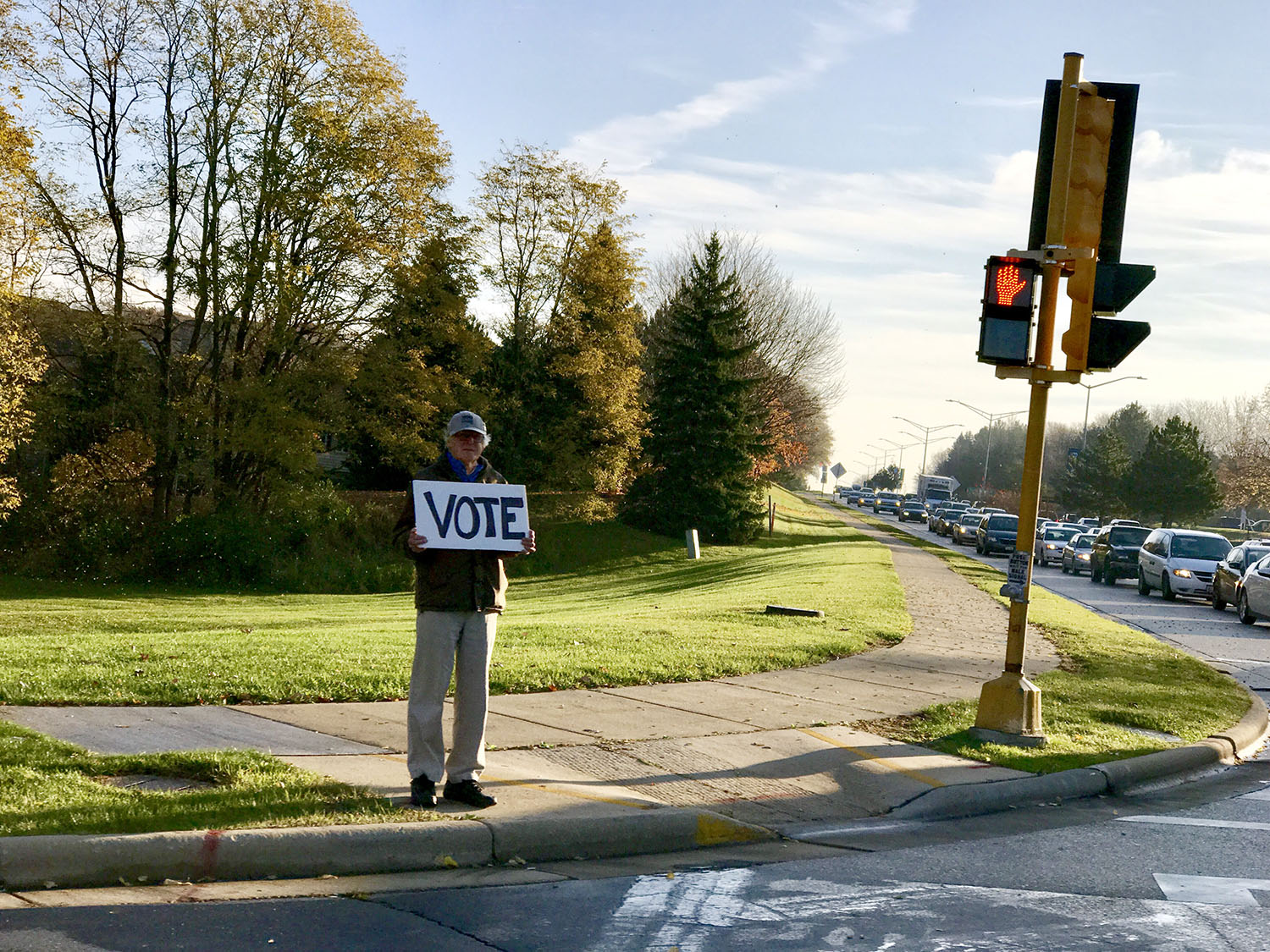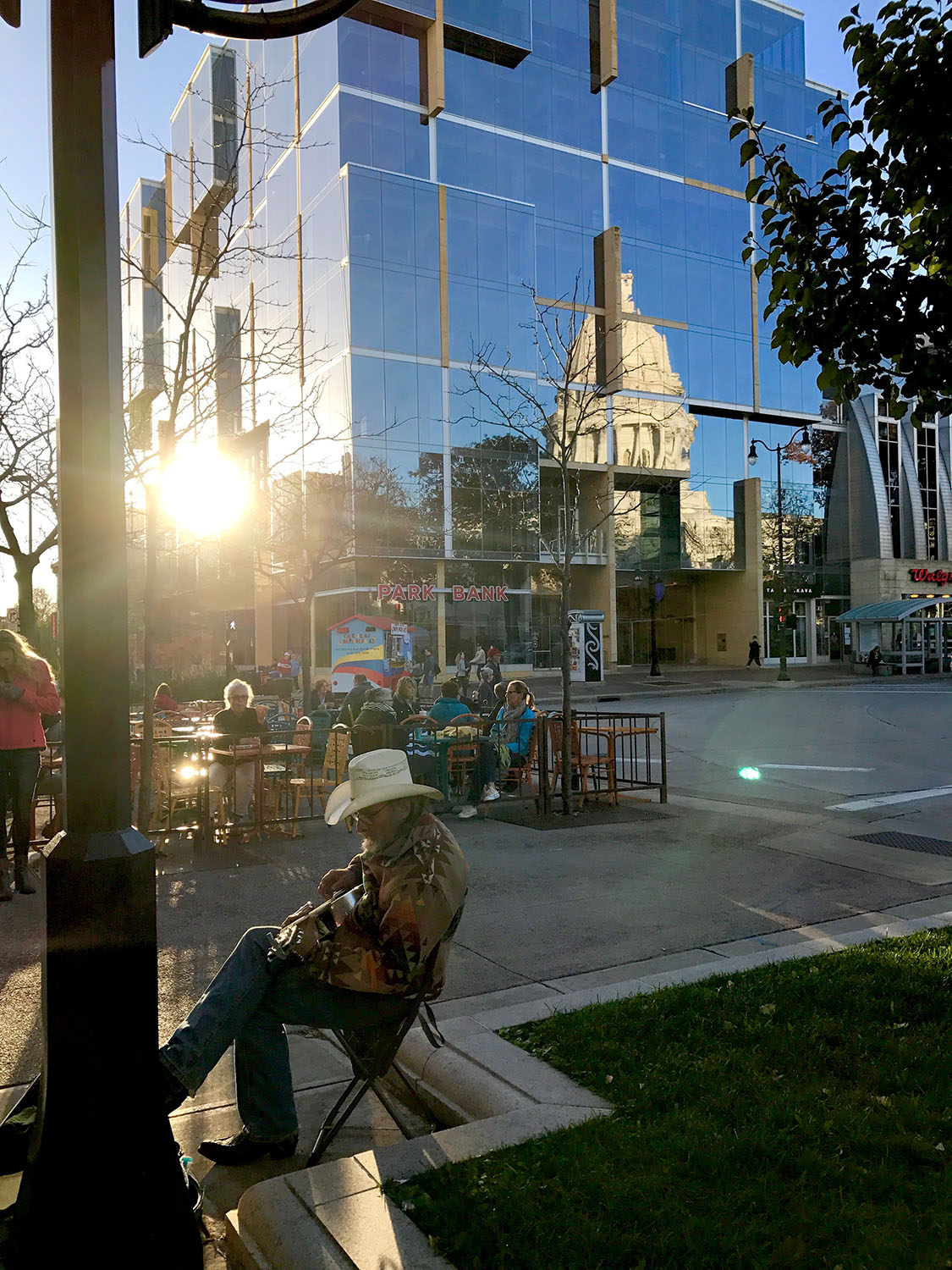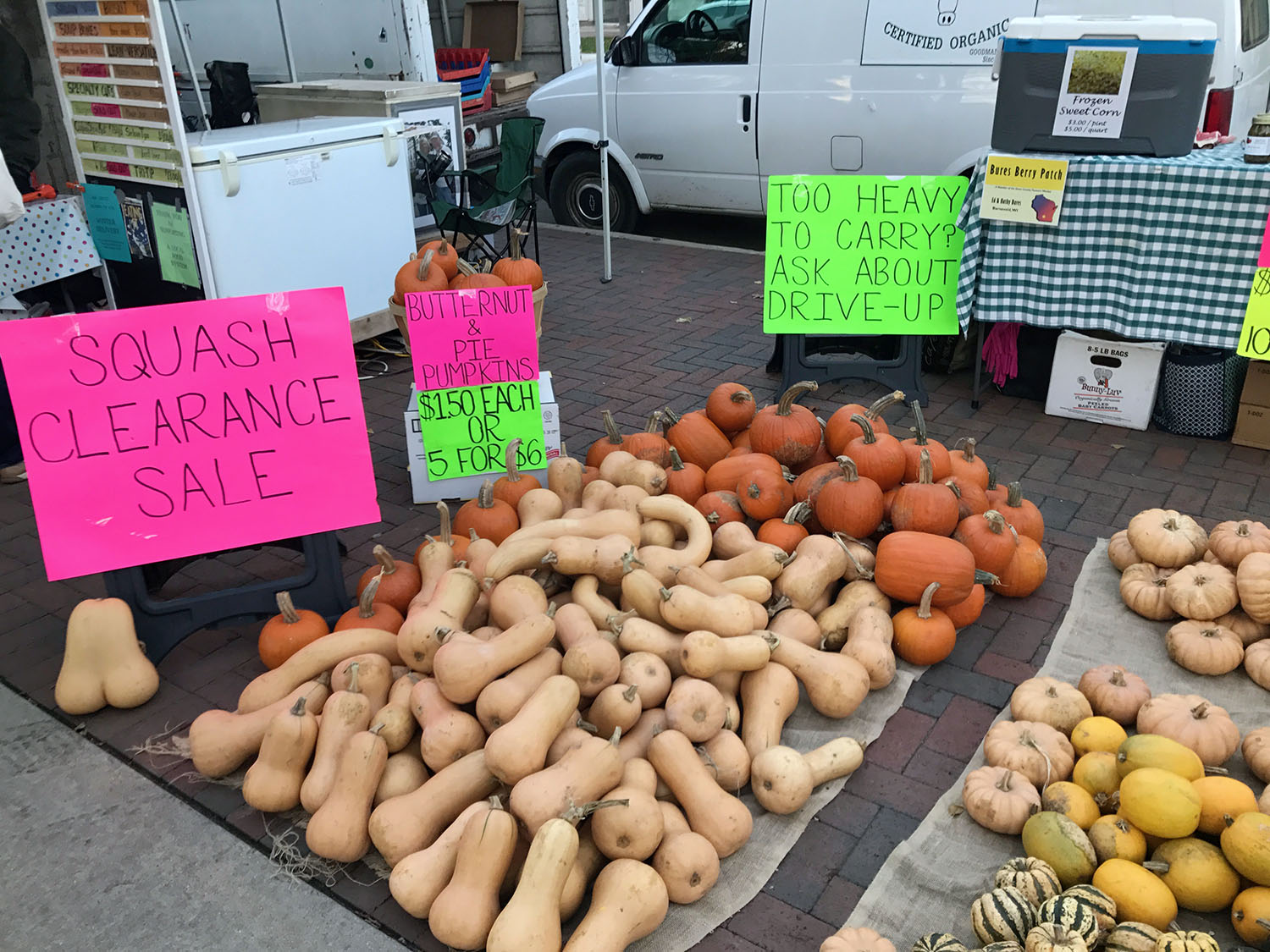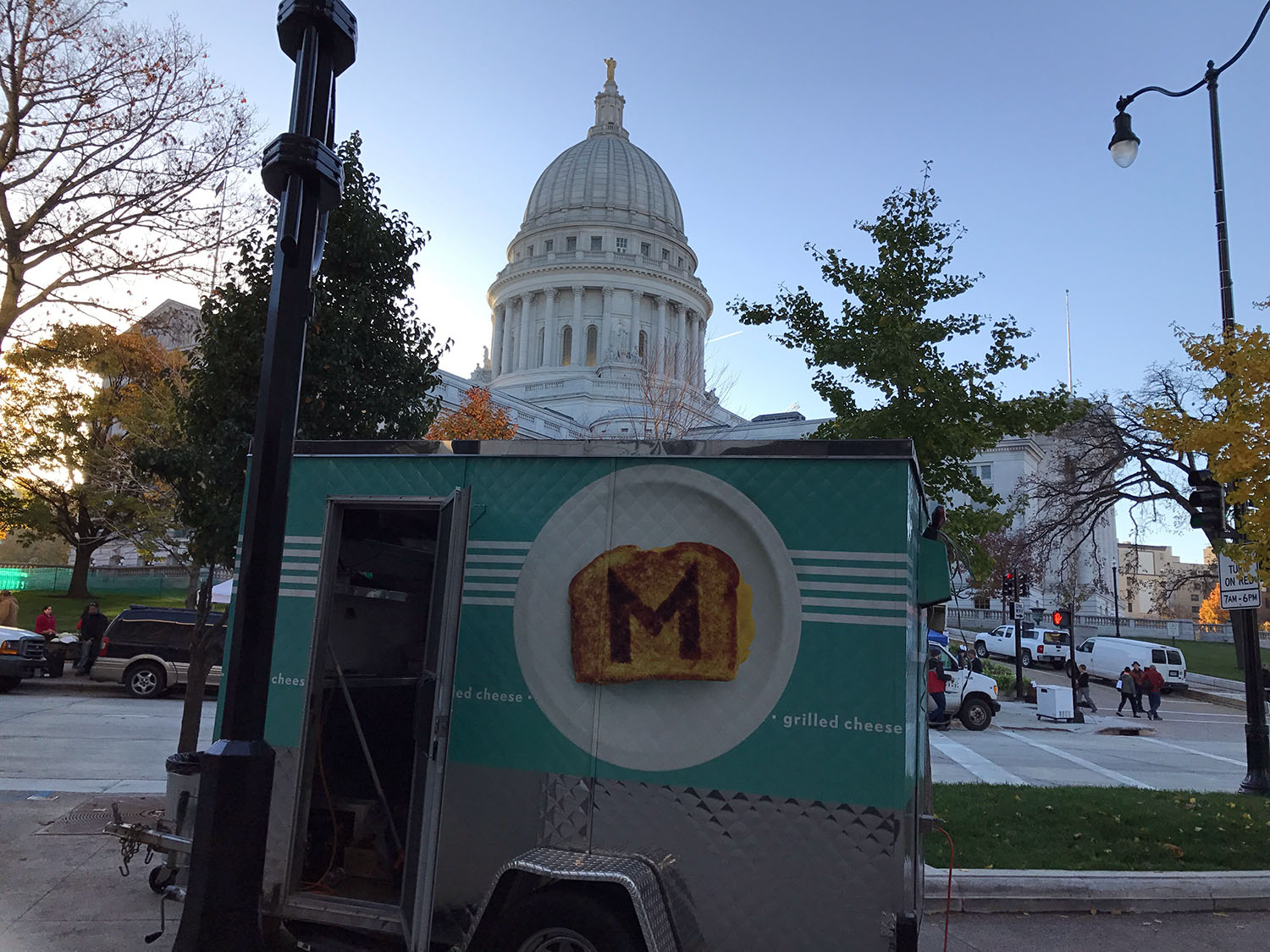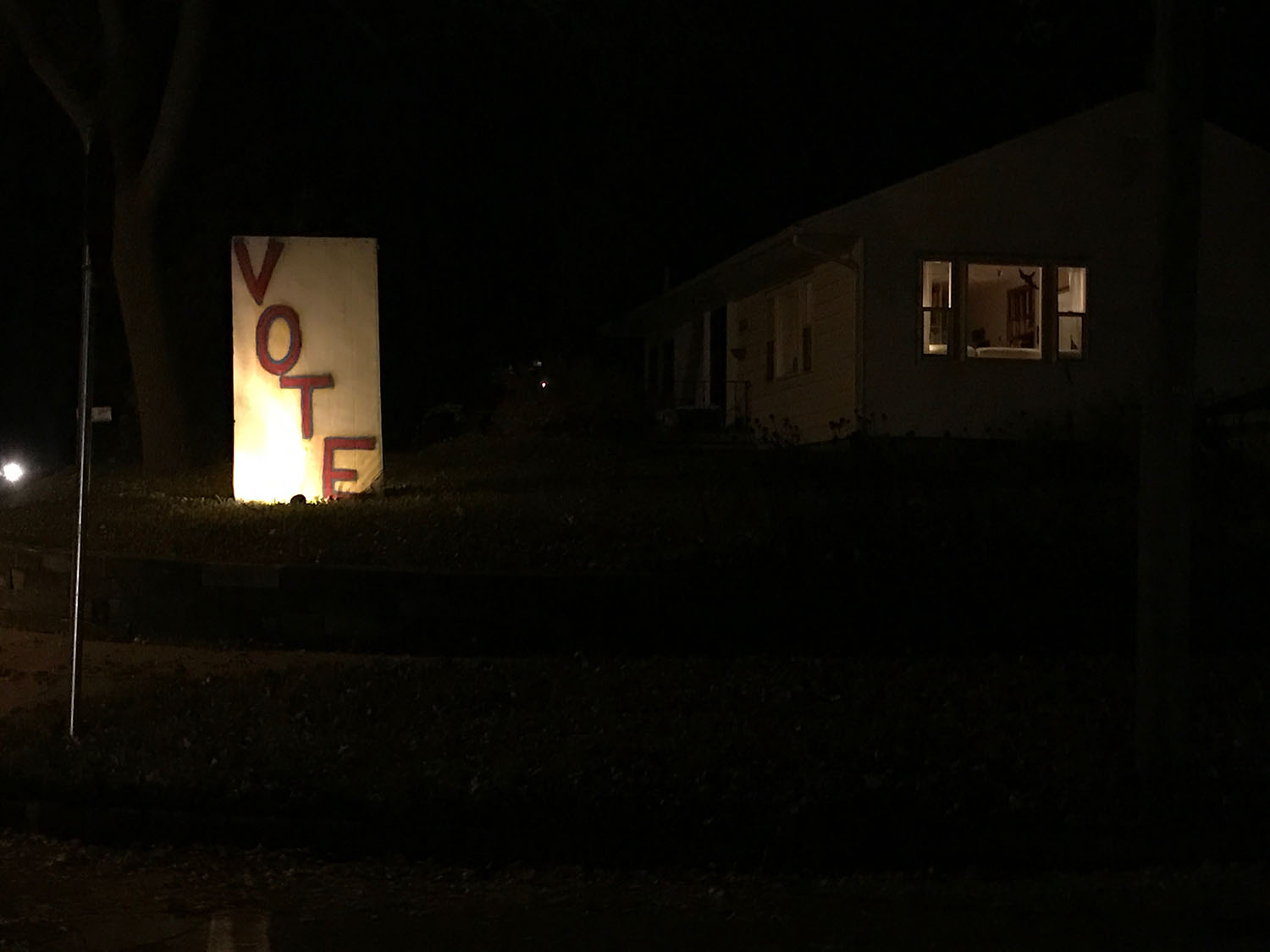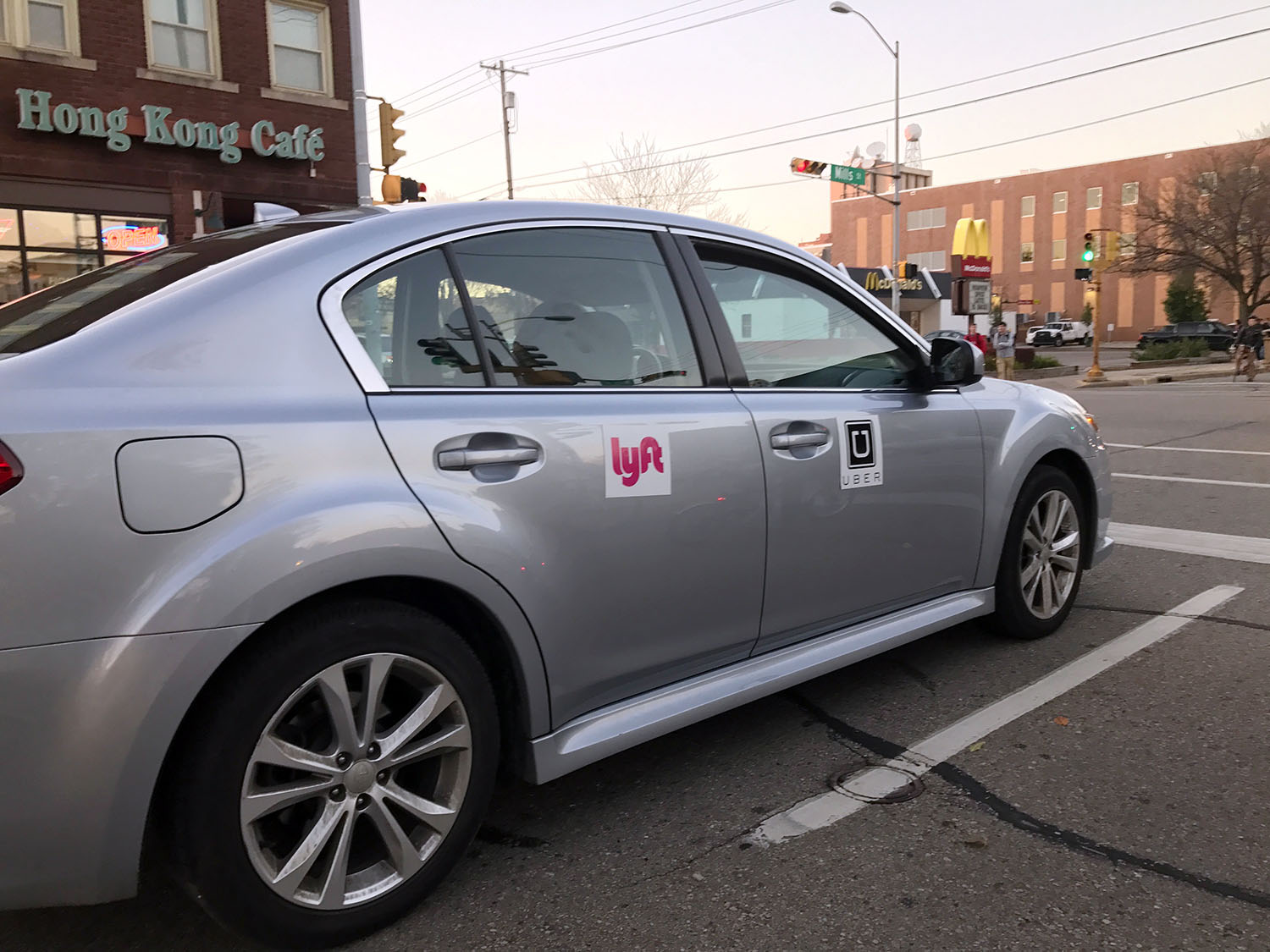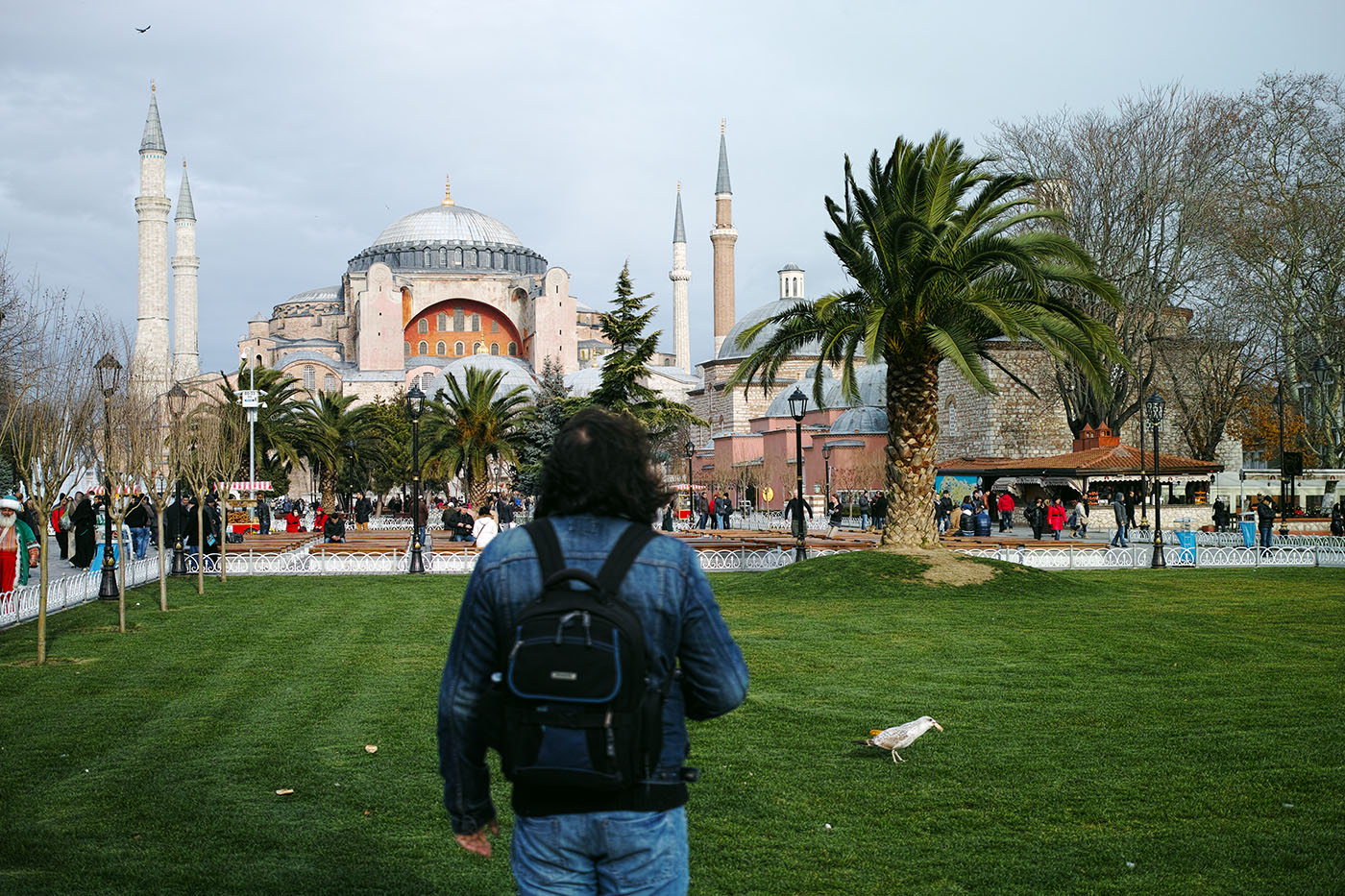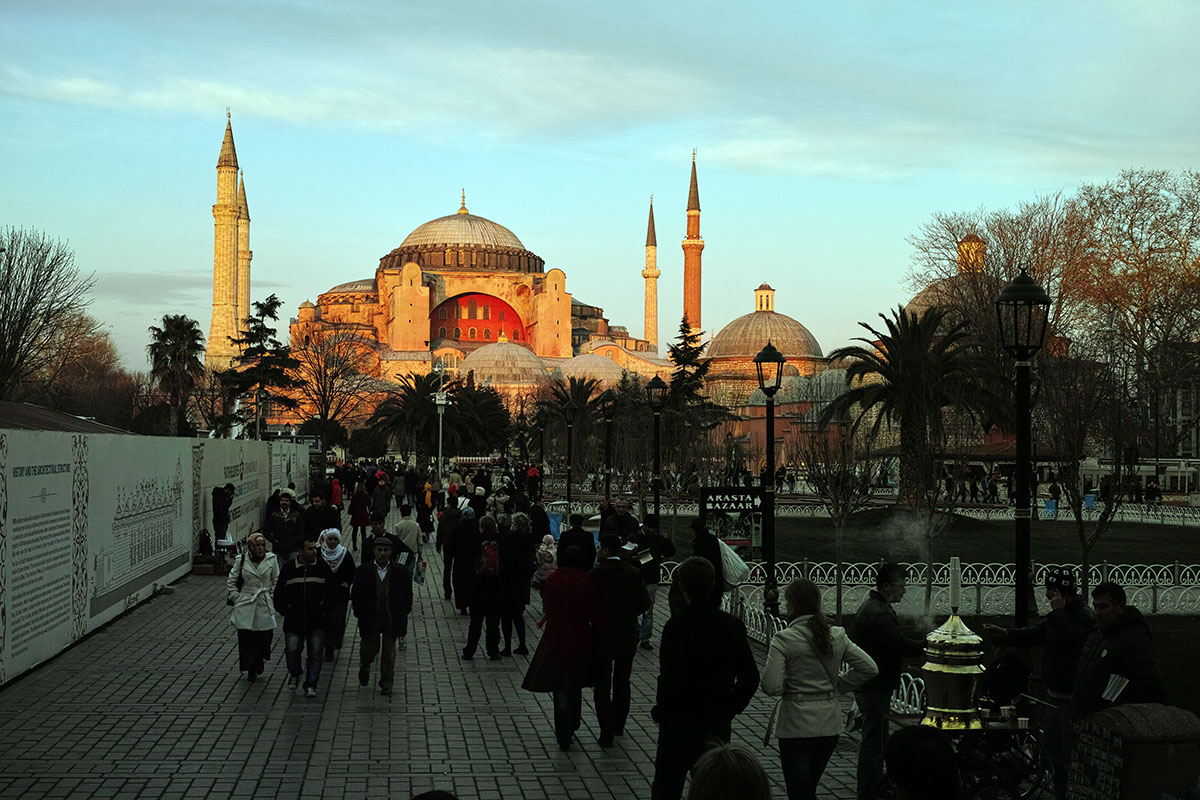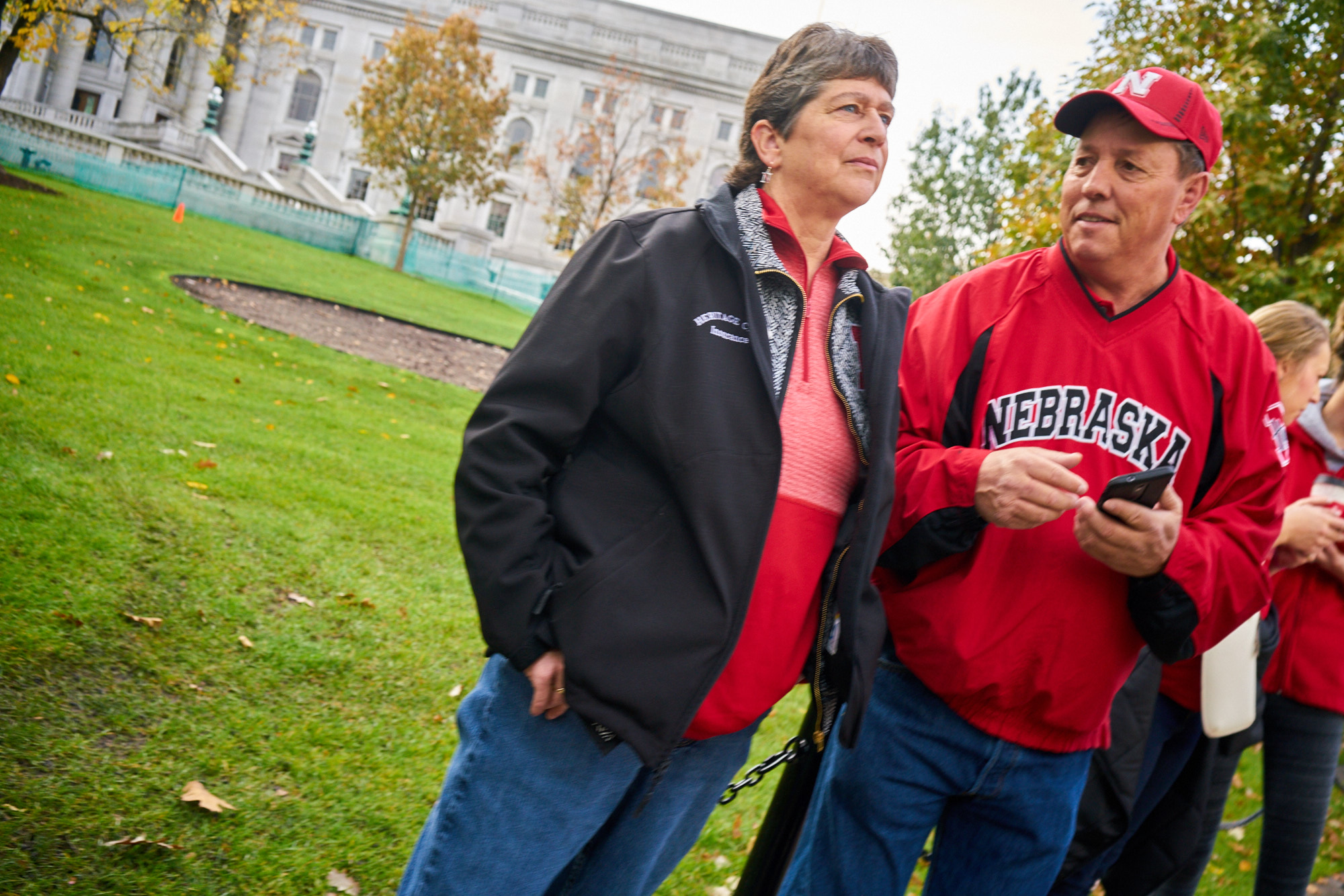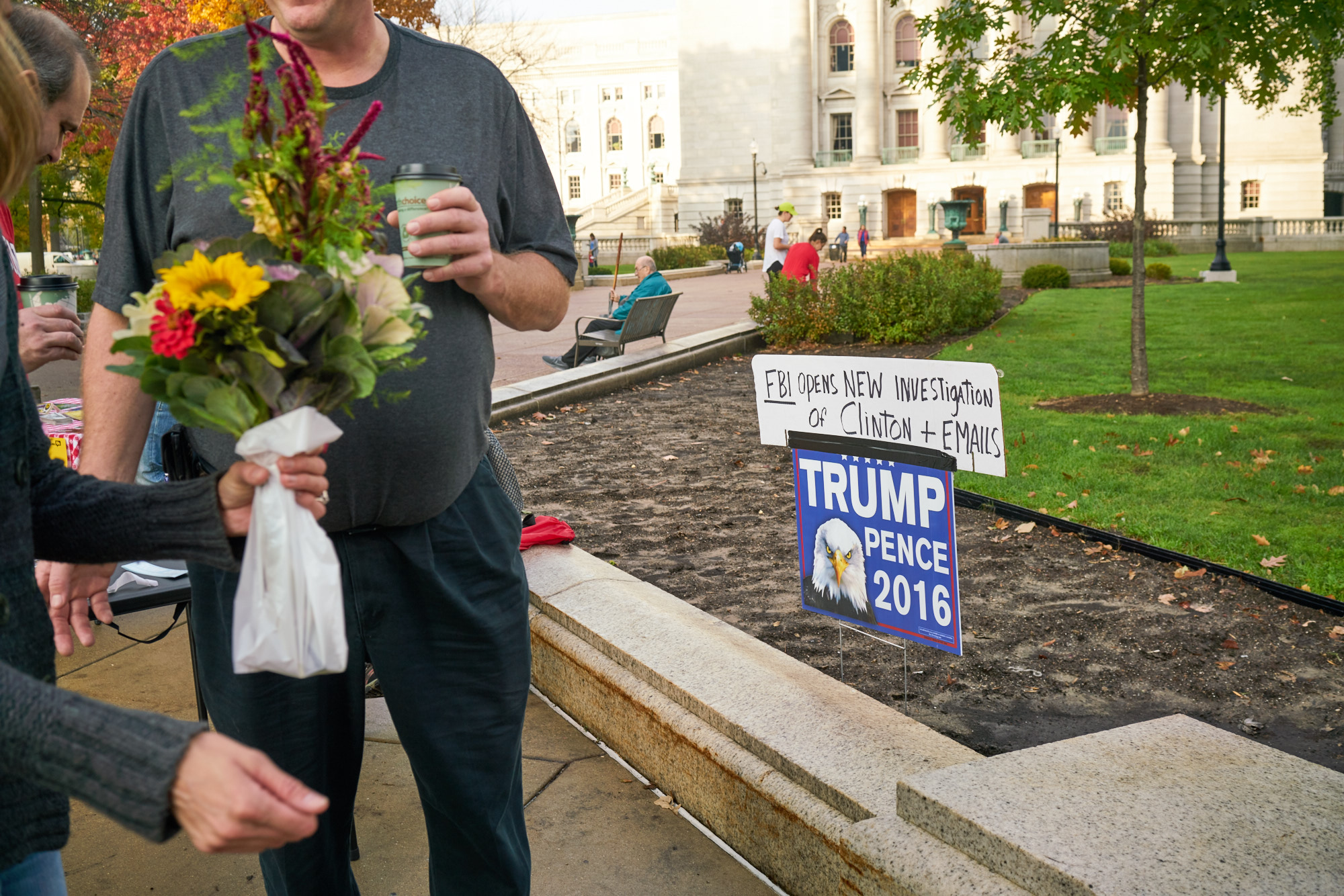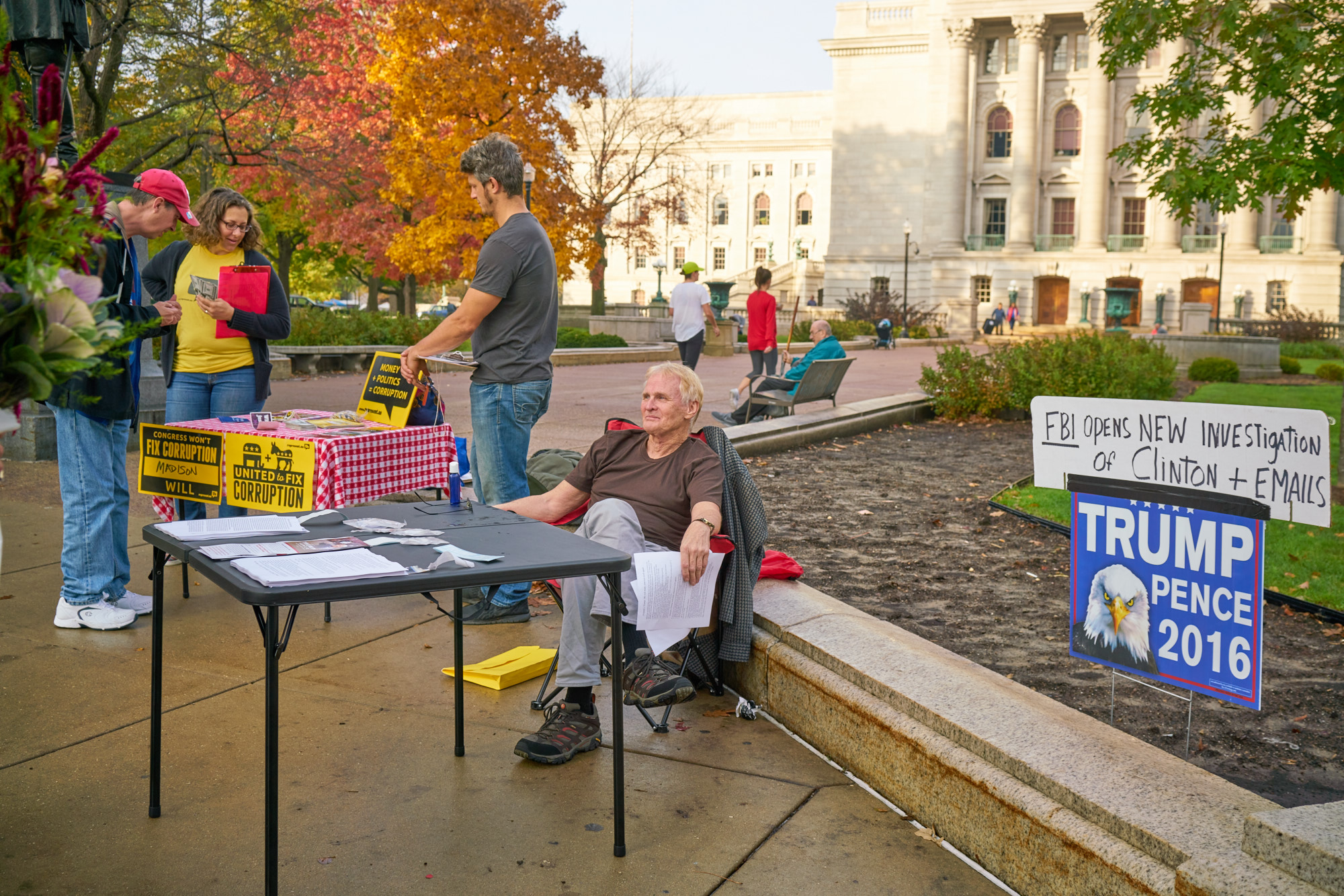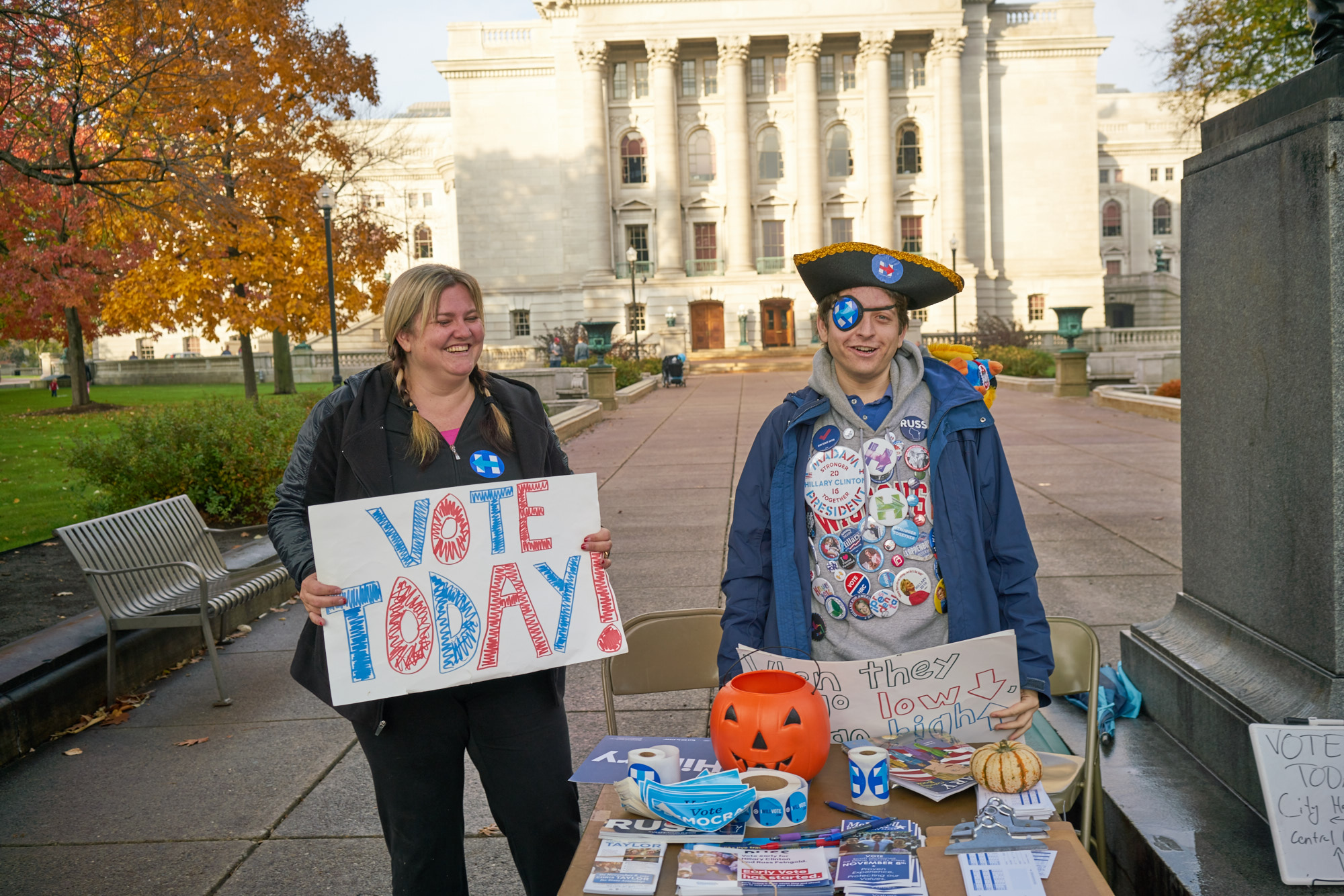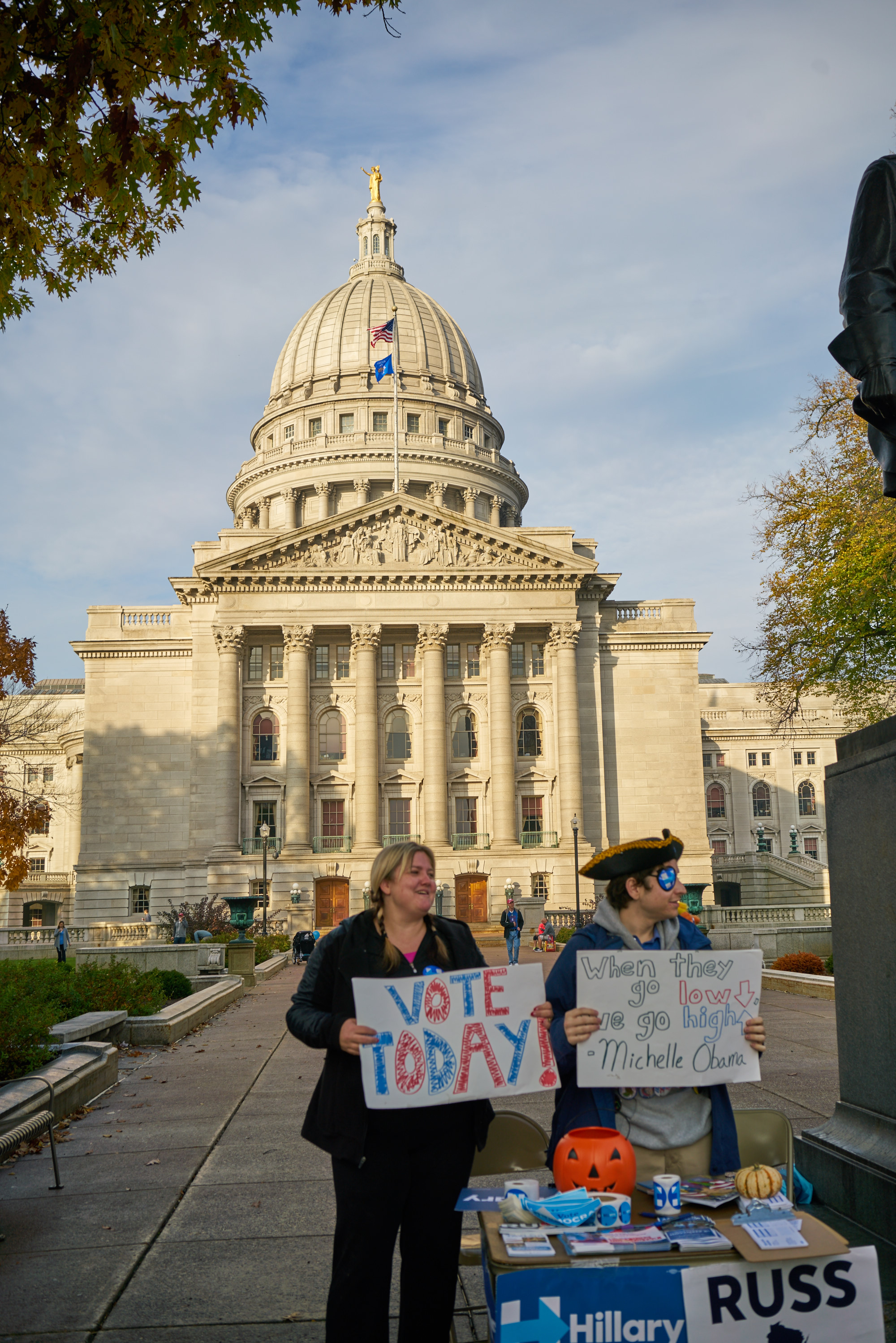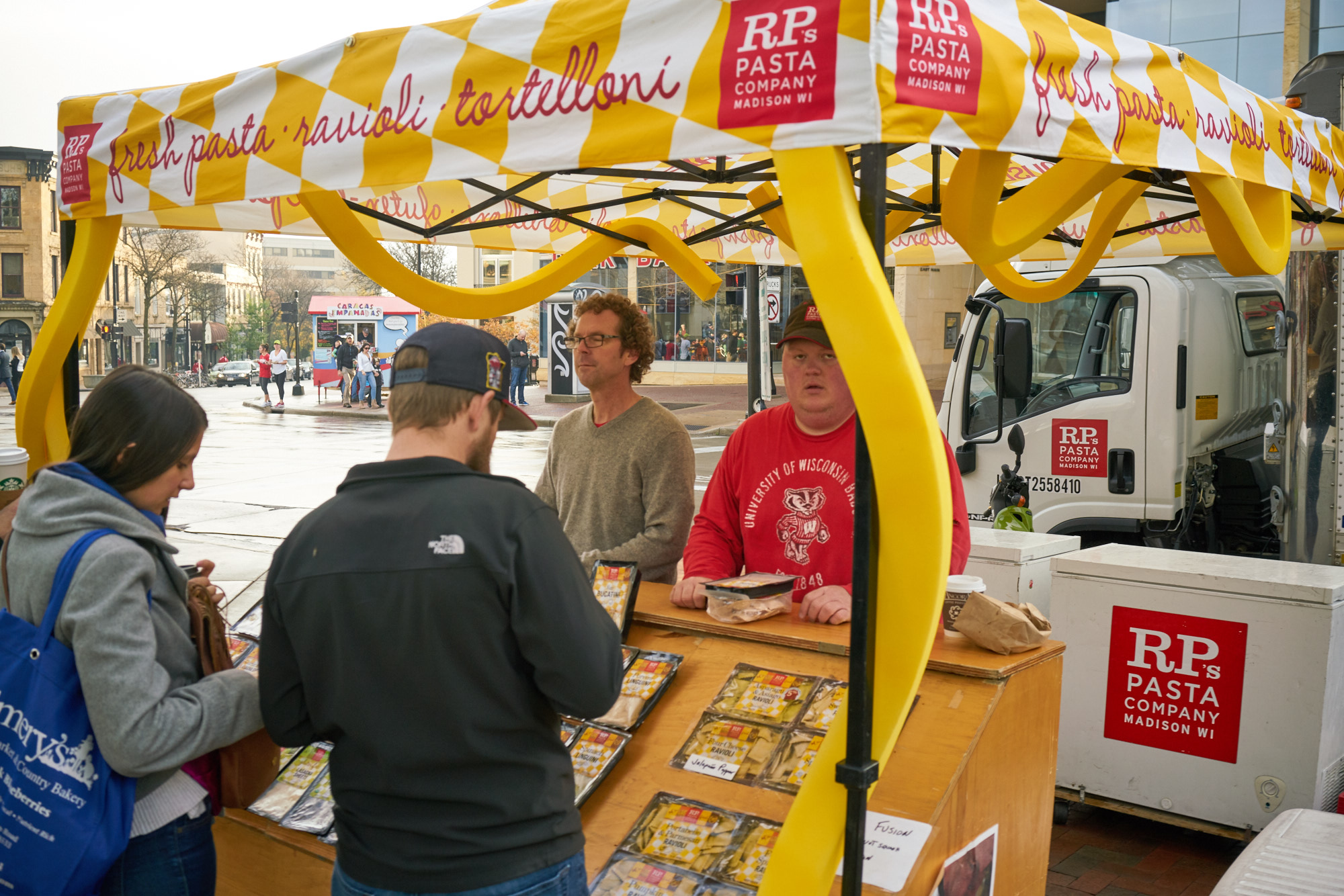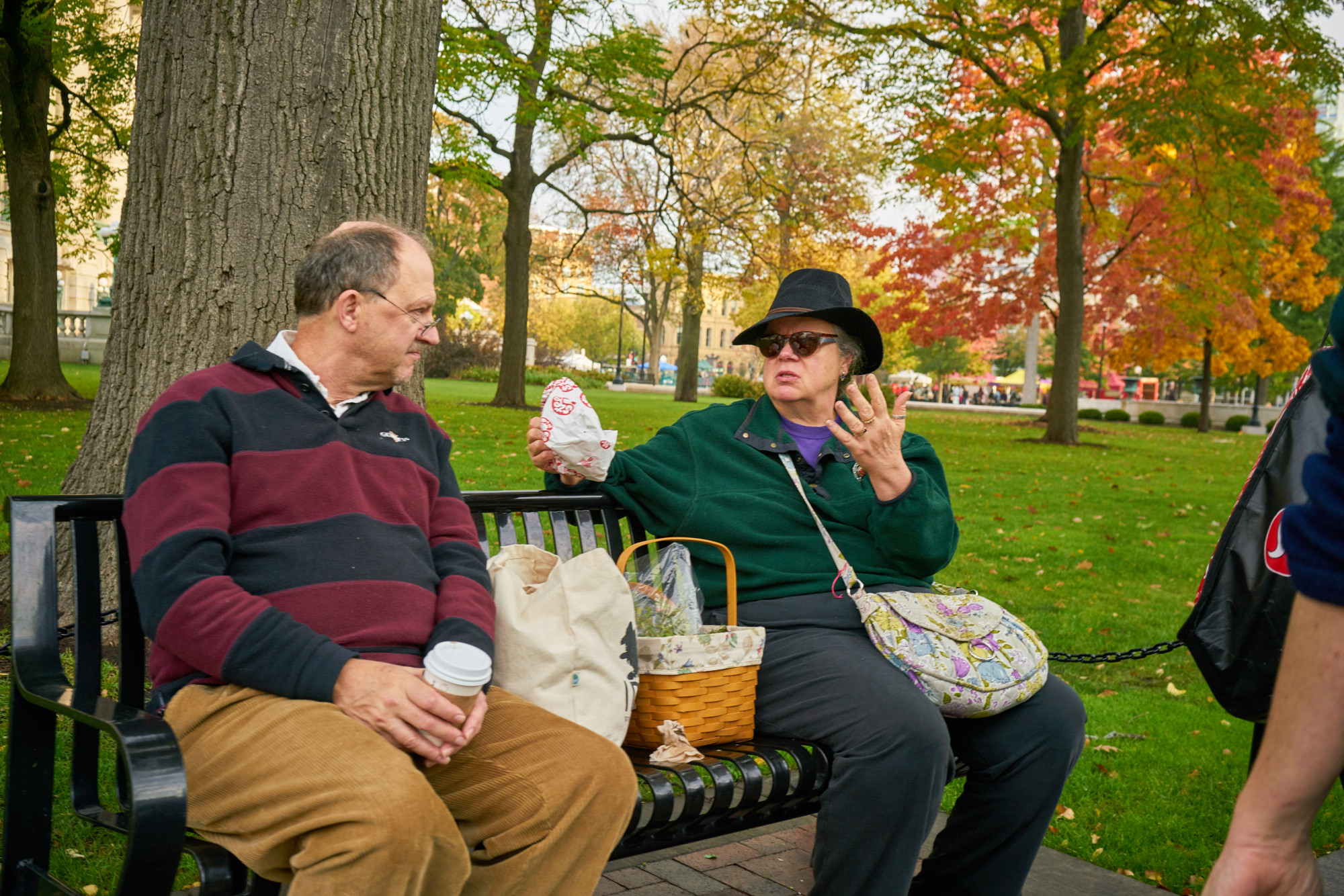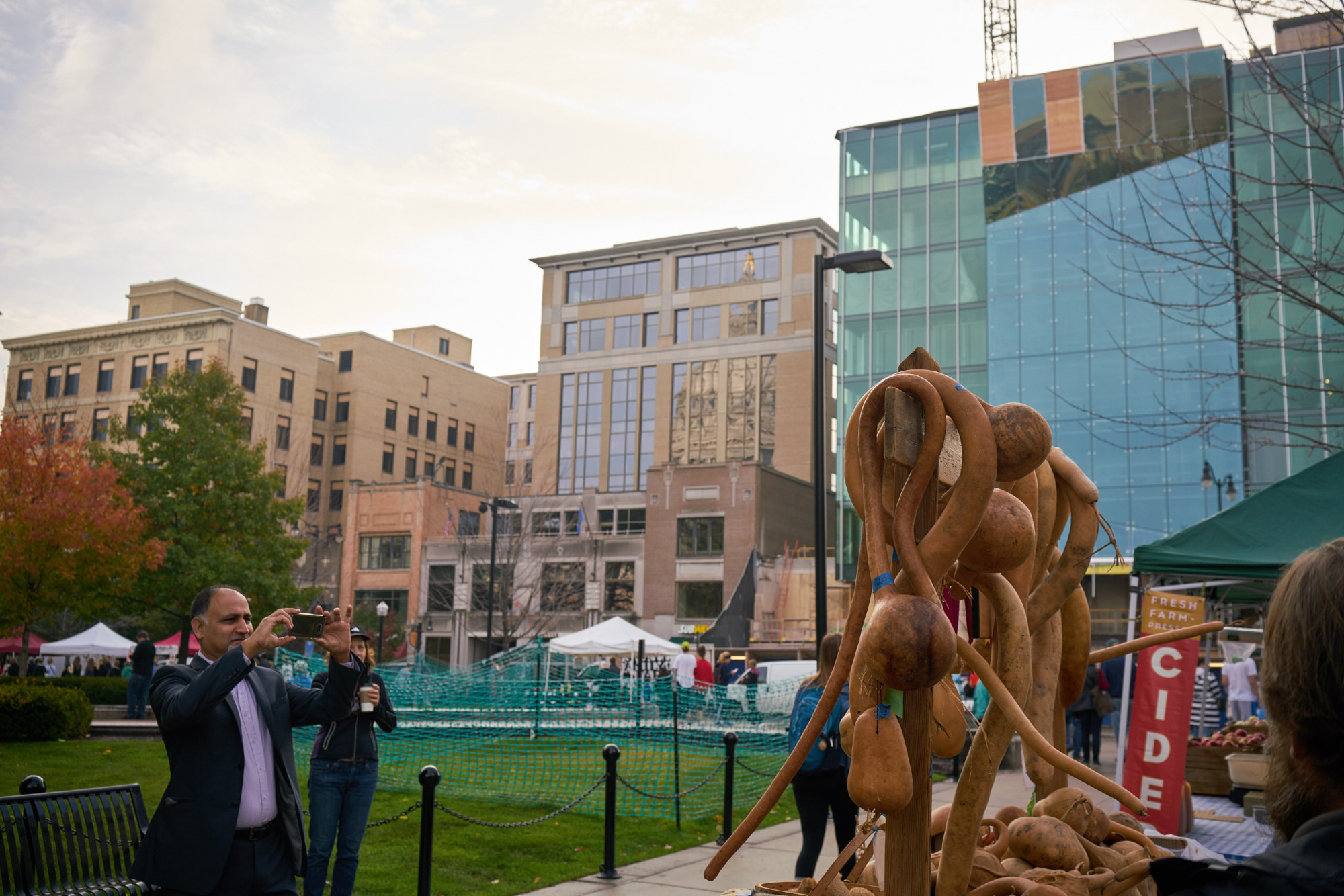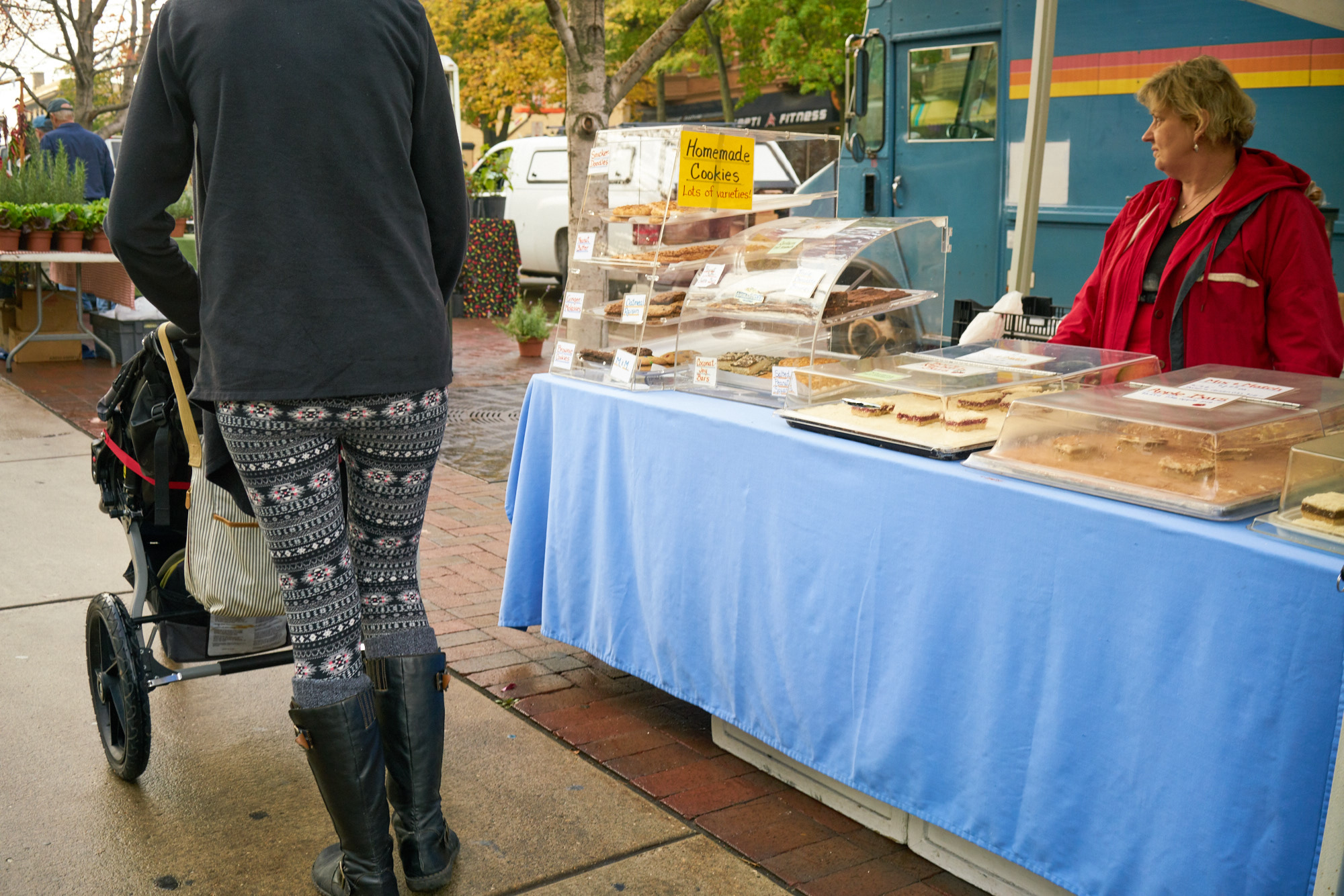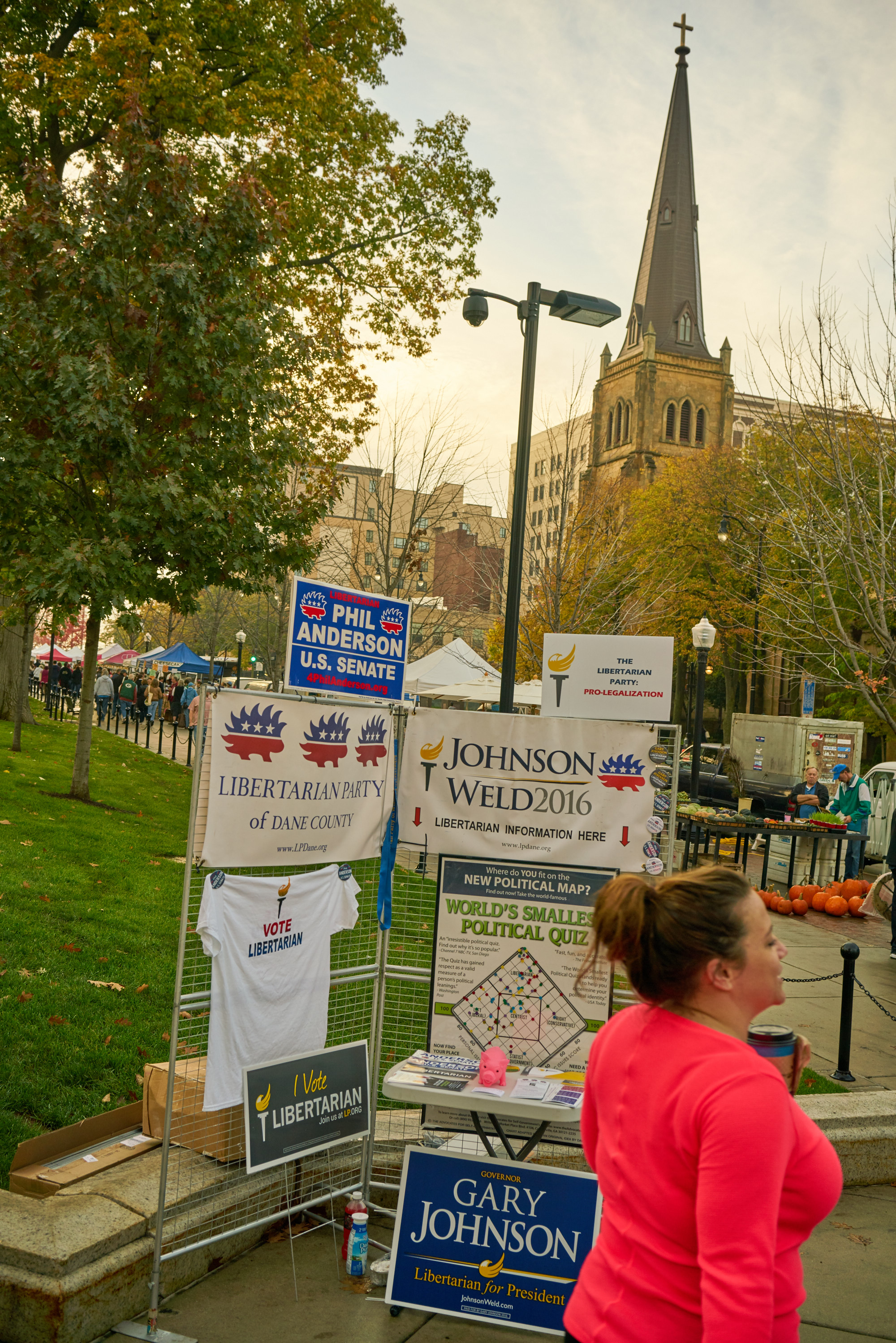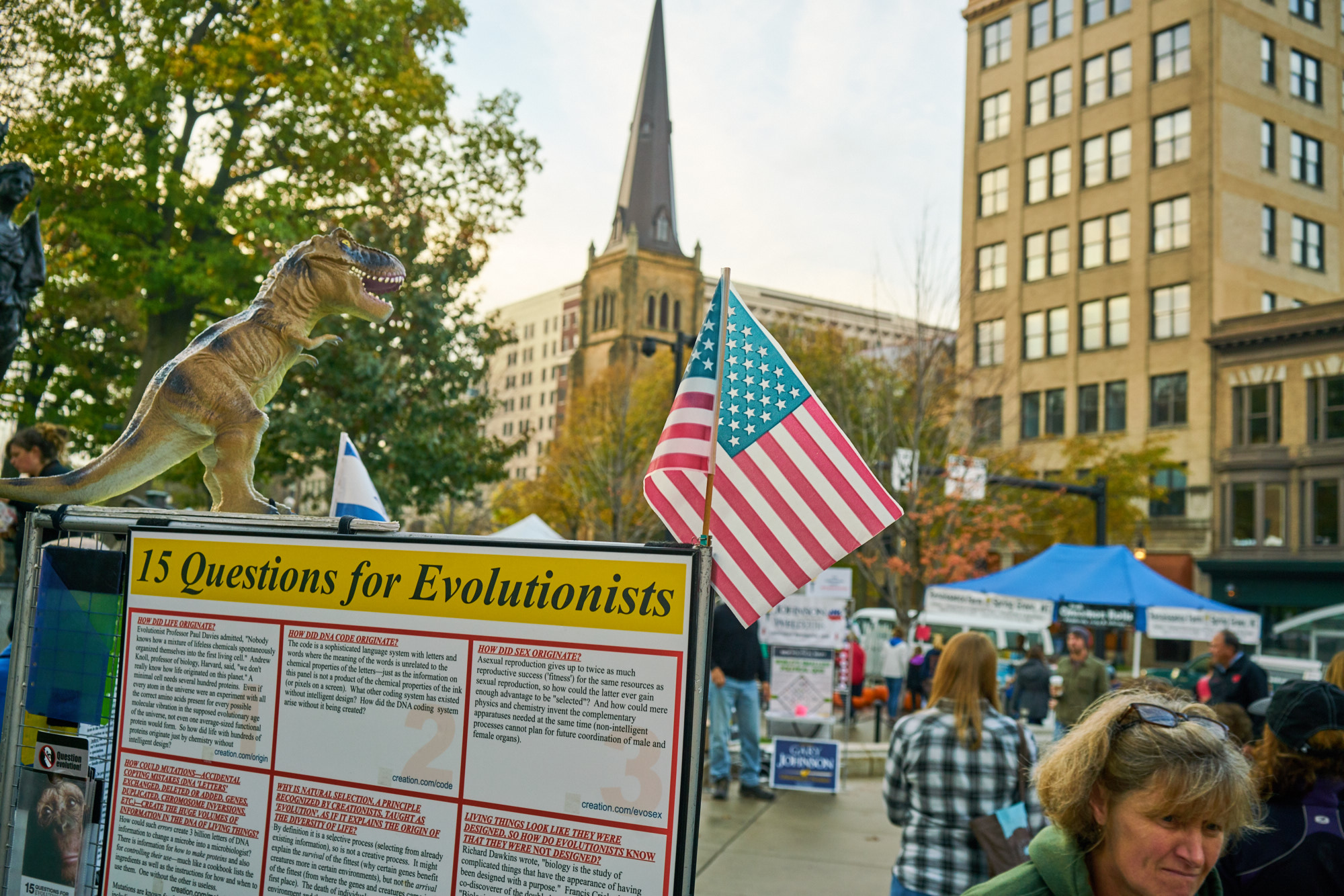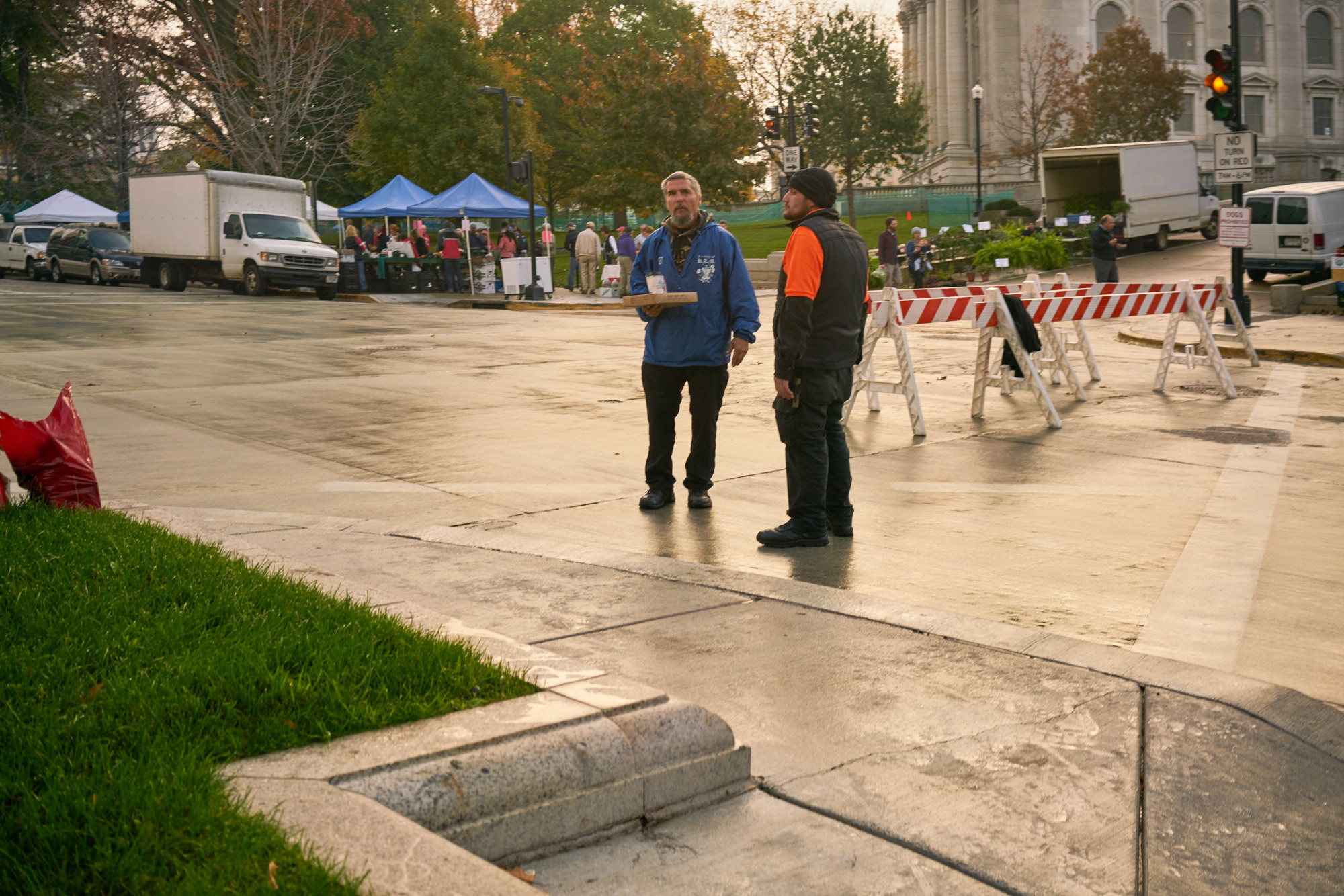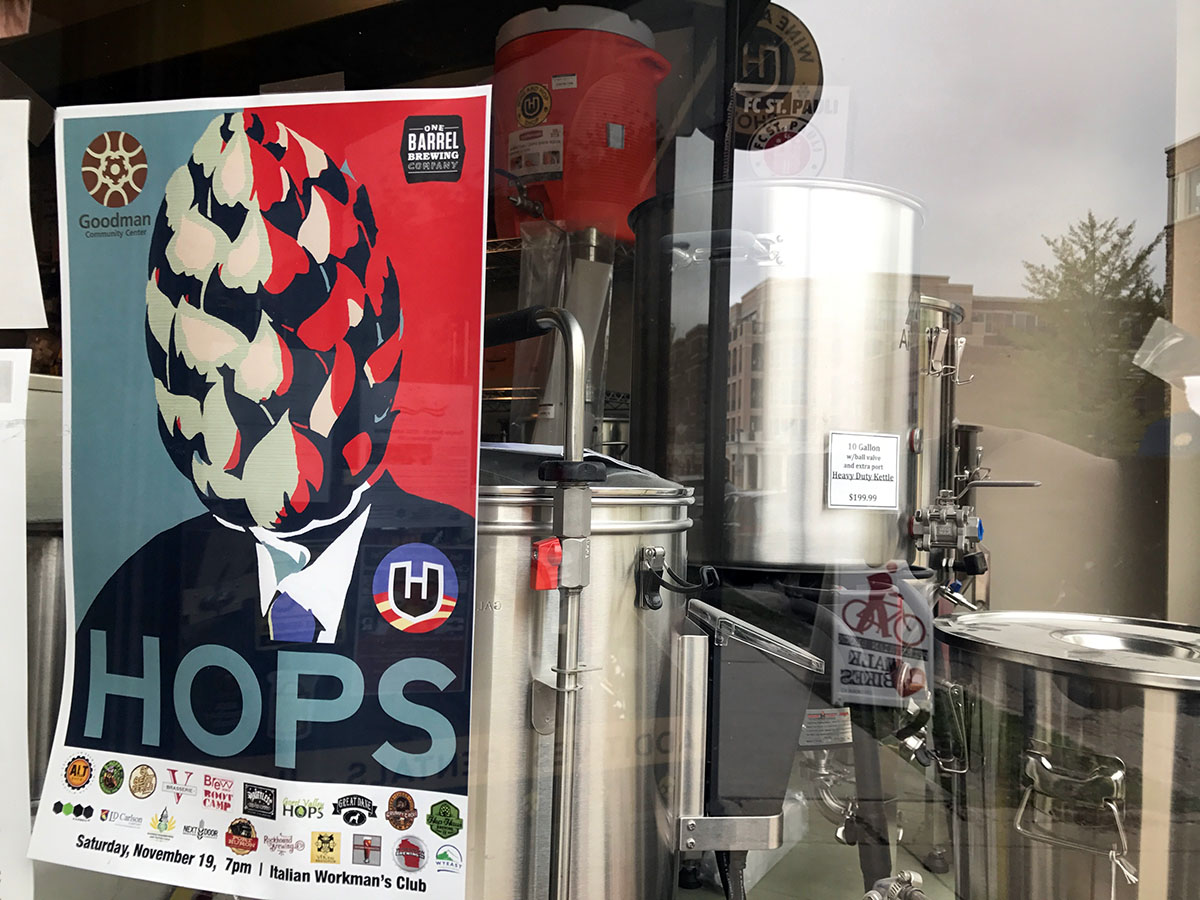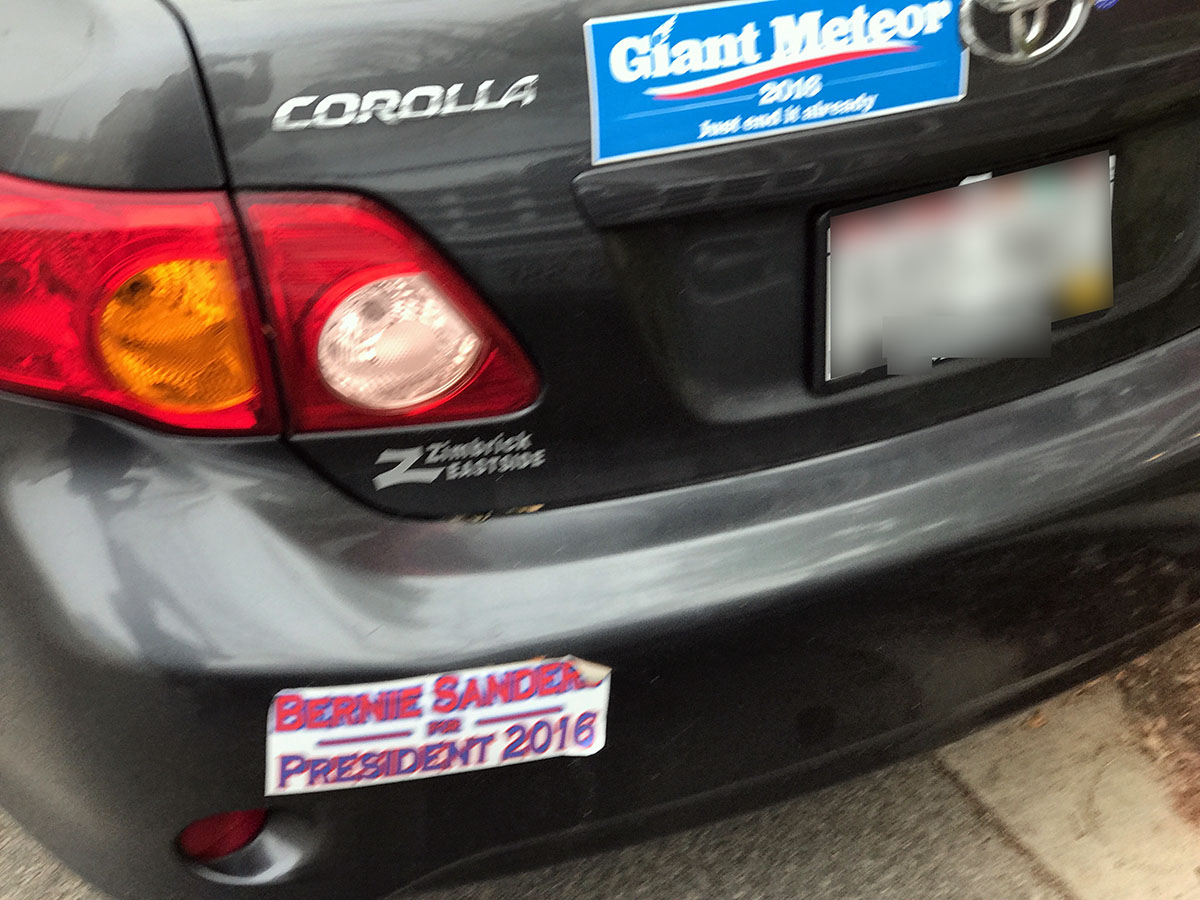Scavino was the titular head of the multi-million-strong virtual community called the Trump Train, creating content and building memes that fueled passion for Trump into a victory. He was one of the few who had access to the @realdonaldtrump Twitter account and would send out tweets on Trump’s behalf. “His genius,” Glassner said, “is that he can read the candidate extremely well and understand the messaging he’ll want to put out at any given time, every given day. It’s being a spokesman times a hundred.”
As a 16-year-old, Scavino had ambitions to work for Trump, and climbed his way up through the company to become a general manager. Scavino, a devout Catholic, is now so close to the Trumps that the campaign staff said they view him as more like a member of the family.
United States Postal Service Museum
2016 Election Bookends: Alphabet/Google Chairman Eric Schmidt and a Citizen
Google Chairman Eric Schmidt (1) writing to Cheryl Mills (2) on April 15, 2014.
A citizen holding a Vote sign on Election Day. He moved with the traffic.
1. DuckDuckGo on Eric Schmidt. More.
2. DuckduckGo on Cheryl Mills.
QUOTATION:
“Well, Doctor, what have we got—a Republic or a Monarchy?”“A Republic, if you can keep it.”
A few worthwhile election notes:
Chris Arnade. A must read, particularly for his work within “fly over” country.
‘We Don’t Know Who the Hero Is Until the Ship Sinks’ – Kinky Friedman:
Not only did Jesus ride in on a jackass, but Gandhi was a yuppie lawyer living in London, with no interest in helping people.
If you look at the great ones, Mother Teresa, Winston Churchill, FDR, they were all aristocratic freaks with very little interest in others. They’re very much like Trump. I mean, particularly Churchill. He was a polo player in India and an adult butterfly collector. They liked to hang out at the country club, Rachel. They were very privileged people.
When they got into office, Churchill and FDR, they did something that Obama was never able to do: change. The agent of change, Obama, could not change himself. He remained a fixed point in a changing world. It’s just too bad; it’s who he is. He’s not the smartest guy in the room. He may be the glibbest. He may be the most facile. I believe, if he’s concerned about a legacy, I believe he can pretty well forget that.
All I’m saying is, we don’t know who the hero is until the ship sinks. Or when the plane is crashing. You don’t know who’s going to run back and save somebody, or who’s going to dress up like a woman so he can hide in a lifeboat.
“Bread and Circuses”, via wikipedia & Mencken Quotes.
The Most Important WikiLeaks Revelation Isn’t About Hillary Clinton.
Donna Brazile is totally not sorry for leaking CNN debate questions to Hillary Clinton.
Democrats, Trump, and the Ongoing, Dangerous Refusal to Learn the Lesson of Brexit.
Assange on the US Election
Cathy Kraemer: The Politics of Resentment.
Finally, the Books of Daniel (more) and Romans (more) are always worth reading when contemplating history, not to mention recent events.
Thoughts on sharing via PDF
The Economist recently tweeted a link to “US Election Briefs 2016”.
A long time Economist reader, I thought it worth a look. Unfortunately, the link revealed an 11 “page” PDF (Portable Document Format, circa 1993) document.
It appears that the document was simply a rollup of previously published articles, created via desktop publishing software and combined into one file for the 2016 US Presidential election.
Surely the Economist, with its global view and deep history could do so much more than a PDF – tweeted I at Denise Law.
She asked what I would like as an alternative?
I have a few ideas:
Display metadata on the candidate names across Economist assets: search, views, requests, bots.
Publish visual representations of these relationships across your assets ala MIT’s ClintonCircle.
Display the information in a variety of ways, including time series and “river of news”. Sort using your metadata. The results are grist for your traditional and emerging channels.
Building for the future, map their travel (1), accomplices including candidates, donors, hangers on, reporters, lobbyists and “enthusiastic, smart and low paid permanent employees” (2). Begin to map legislation, rule making and executive orders (3) to these locations and people.
Add US voter data layers to the map in preparation for future elections.
Automate. Render short videos using the maps, relationships, money and data.
Season this work with EIU data.
Perhaps our simple amuz app might offer a bit of inspiration. amuz is designed as a quick, modern introduction to my home: Madison. It is a beginning.
I would be happy to chat in further detail, when convenient.
——
1. The Economist:
Since taking office, Mrs Clinton has visited 95 countries (see map) and logged some 730,000 miles, sometimes cramming more than a dozen meetings into a single day.
2. Google Chairman Eric Schmidt writing to Clinton Campaign Chair Tony Podesta.
3. A Bill (Kenan Thompson) tries to explain government to a little kid (Kyle Mooney), then President Obama (Jay Pharaoh) and his bullying friend Executive Order (Bobby Moynihan) explain how things really work. [SNL Season 40, 2014]
—–
P.S. The fruits of data and related analysis:
Propublica: President Obama promised to fight corporate concentration. Eight years later, the airline industry is dominated by just four companies. And you’re paying for it.
“They used their pull in the administration, including at the White House, and with a high-level friend at the Justice Department, going over the heads of staff prosecutors. And just days after the suit was announced, the airlines turned to Chicago Mayor Rahm Emanuel, Obama’s first White House chief of staff, to help push back against the Justice Department.
Some lawyers and officials who worked on the American-US Airways case now say they were “appalled” by the decision to settle, as one put it.
“It was a gross miscarriage of justice that that case was dropped and an outrage and an example of how our system should not work,” said Tom Horne, the former state attorney general of Arizona, one of seven states that were co-plaintiffs with the federal government.”
Rather fascinating to see the Mayor of Chicago mingling with a federal matter.
Autumn Light
Arboretum Afternoon
Morning Light
Thankful for a gorgeous November day.

“All Credit Card Readers Are Secured With New Locks”
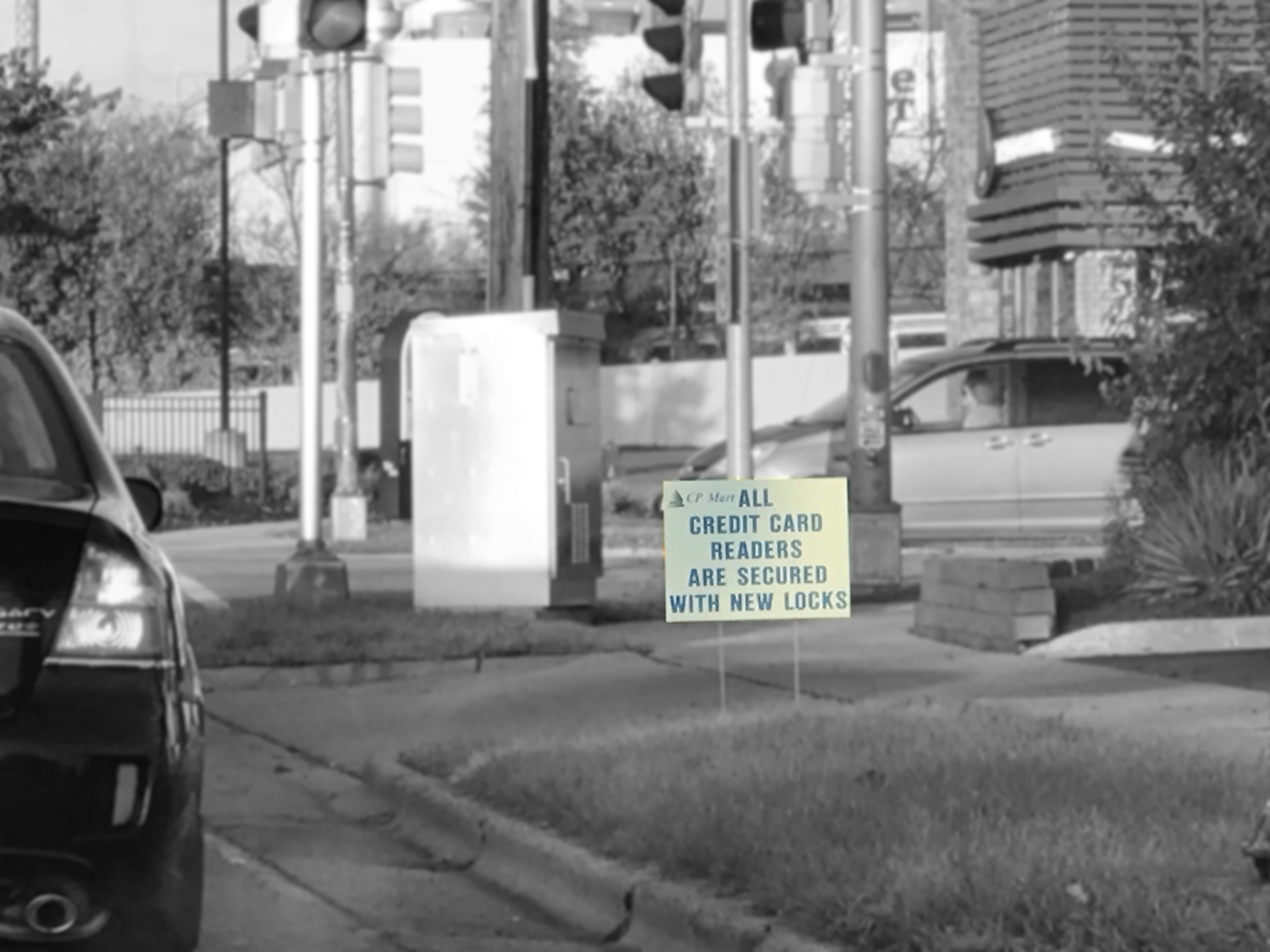
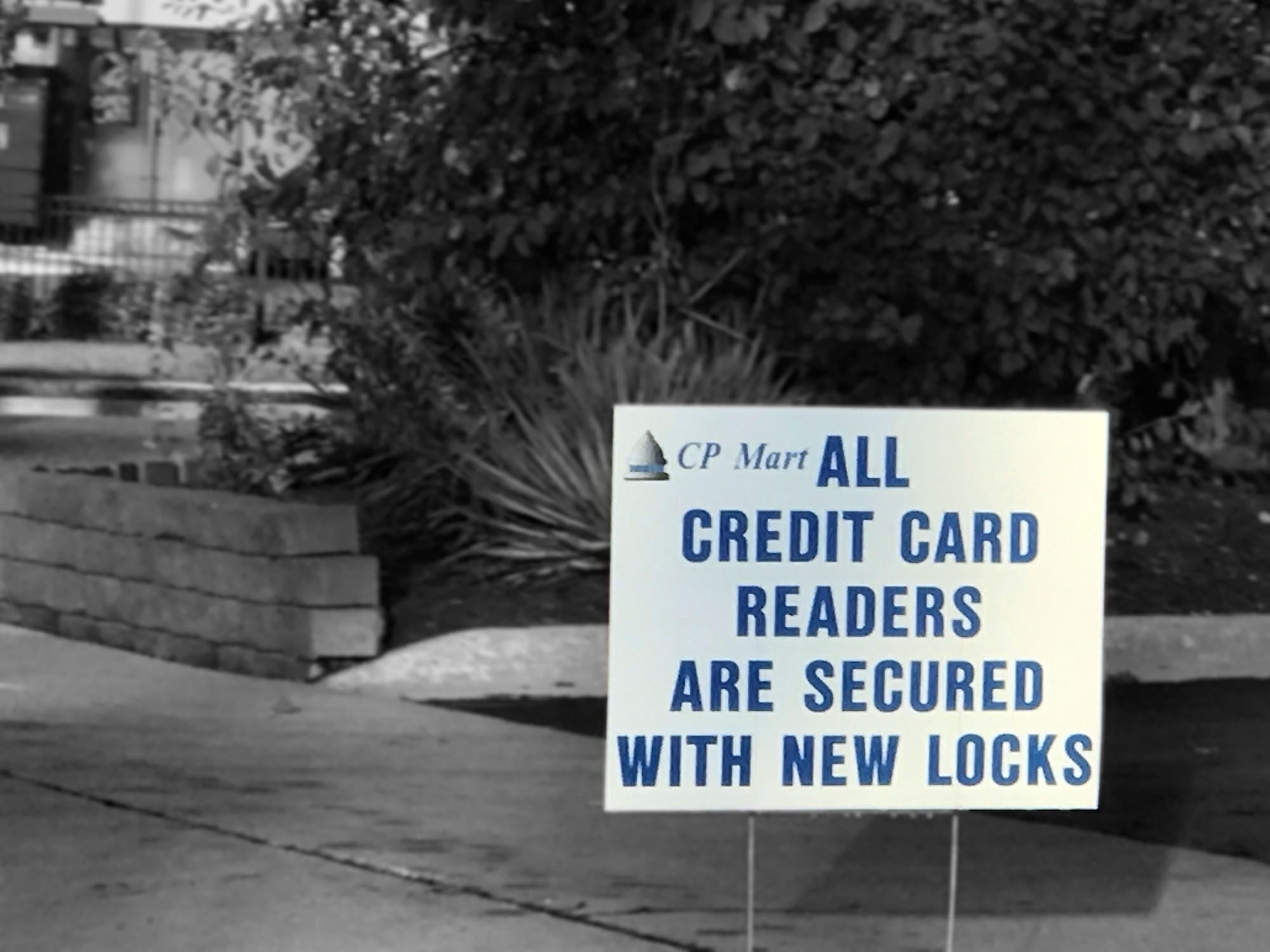
Drive by notification….



